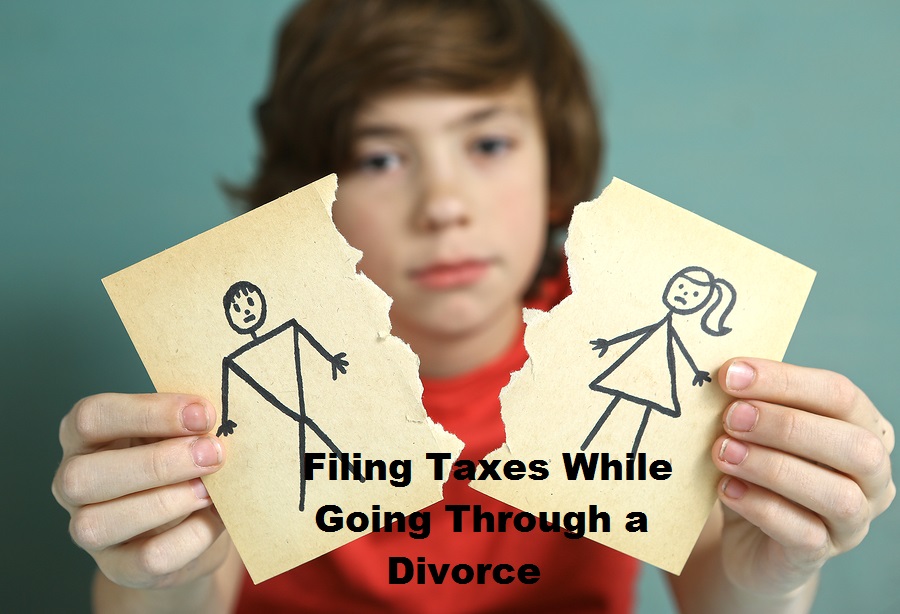
Going through a divorce is traumatic. It’s sad. And it’s a royal pain in the behind. On top of all the emotional stuff you’re going through, it can also really mess up your taxes.
Let’s say that right now you and your ex are still married but living apart. The divorce will be final this year, but you still need to file last year’s taxes. What do you do?
Scenario One: You’ve been apart and on your own with the children for over 6 months.
In this case, you are entitled to claim the head of household filing status, the children’s exemptions, EIC (if your income allows it) and the child care credit of your kids are in daycare. Basically you get everything.
Your ex would only be able to claim Married Filing Separately. That could really hurt him at tax time. That’s not your problem, just letting you know what his status is.
So—bottom line—if there’s a fight, you win. Be aware, that he’ll probably try to claim the kids anyway (I see that all the time.) Your refund could be delayed by 75 days. But, if he files first and you get rejected—don’t quit, you’re the winner.
Scenario 2: Couples who did not split apart until the second half of the year.
If you lived with your spouse at all during the last six months of the year, then you’re not allowed to claim the Head of Household filing status. Your only two options for your filing status are Married Filing Separate and Married Filing Jointly. Until your divorce is final, you cannot claim Single.
If you file separately, you lose the Earned Income Tax Credit. There are other deductions you can lose too, but the EIC is probably the most devastating to lower income taxpayers with children.
The incentive to file jointly in this scenario is much higher than if you’re allowed to claim head of household.
No matter which scenario you’re in, there’s another filing option: Married filing jointly.
First, if your ex is abusive or dangerous to you or your children in any way—don’t go there, stop here and file head of household or Married Filing Separate. Never risk physical danger.
But, if your ex has some redeeming characteristics—think about it, you’ve probably got adorable kids. He’s done something right somewhere along the line. Remember, you’re going to be dealing with your kids’ father for the rest of their lives even if you’ve divorced him. Mercy might be a good option for future family peace.
So, if you’re thinking about filing jointly, first, you prepare your own taxes, as HOH or MFS like above, claiming all of the exemptions you’re entitled to and figure out your refund.
Next, I recommend doing this at a tax place, not on your own—so that you give yourselves a “mediator”, figure what the refund, or tax situation would be if you two filed together.
Then you’re going to “split the refund”. That is, you set it up so that instead of getting one refund check to go into one bank account, you have the IRS send the refunds to your separate checking accounts (so you don’t have to rely on your ex to sign a check or give you money or anything like that.) You do that using the 8888 form. Here’s a link: http://www.irs.gov/pub/irs-pdf/f8888.pdf
BUT—and this is really important: OKAY, I’M CAPITALIZING AND WRITING IT SEPARATELY BECAUSE IT’S REALLY IMPORTANT: You don’t have to split the refund evenly. You make sure that you get the full amount of what you’d get if you filed separately. That’s only fair. If you were the one that supported the kids, paid the rent, etc, especially if you would be allowed to claim head of household, then you should get the whole of that much of your refund.
You make sure that the refund is split the way it should be and don’t leave the tax place until you see that the return has been e-filed. That way he can’t go back and change the dollar amounts.
Remember, you only file with the ex in order to keep him from totally tanking on his taxes because of the married filing separate classification. This might not help him at all—in which case you don’t file jointly.
Sometimes, you don’t want to file jointly with a soon to be ex. Here are some good reasons not to help the ex by filing jointly:
- If he’s in some kind of tax trouble from before—keep away
- If he owes on student loans or child support to a previous family—keep away
- If he’s self employed—he’ll probably owe and is more likely to get audited—that’s a red flag, use your judgment. The EIC you’d get could be used to pay his self employment taxes and your refund probably wouldn’t be high enough to cover what you’d get by filing alone. But if he’s a decent person—and not crooked, the financial benefit to him could be amazing.
- If he’s crooked. Seriously. If you suspect that he has cheated on his taxes in the past, don’t risk having your name tied to his tax return. Walk away.
Divorce isn’t easy on anybody. Make sure you know your rights and what you’re entitled to and don’t be bullied into doing something that’s not legal or in your best interests.
